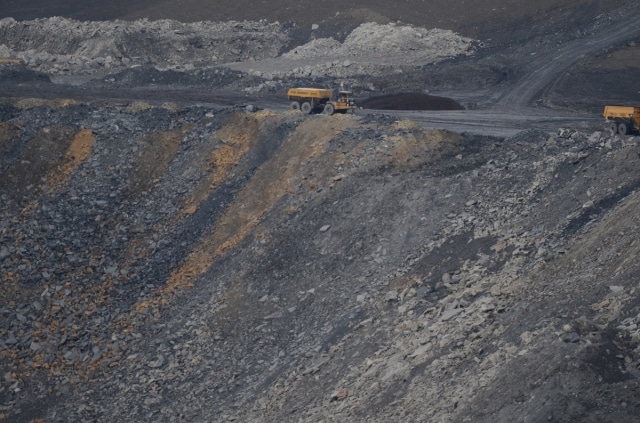British climate denier and coal baron Matt Ridley is the most cited individual in coal giant Peabody Energy’s official submission to the White House addressing the company’s concerns regarding new policies proposed by the US Government around greenhouse gas emissions and climate change.
The 71-page document on the government’s National Environmental Policy Act, uncovered by DeSmogBlog, declares that greenhouse gases are a “non-existent harm”. Ridley’s opinion articles, such as one professing “fossil fuels will save the world” published in the Wall Street Journal, form much of the basis for the coal company’s arguments submitted in March.
Ridley writes frequently in the Wall Street Journal and the Times promoting fossil fuels, while at the same time earning considerable wealth from coal mining. The peer’s Blagdon Estate, north of Newcastle, covers a significant part of two opencast mines.
Ridley and the GWPF
But Peabody’s fondness for British climate deniers doesn’t stop there. An analysis of the 304 footnote citations in the Peabody document finds that Lord Lawson’s climate denial charity, the Global Warming Policy Foundation (GWPF), is also among the top sources cited by the energy giant.
With 16 citations in total, the GWPF’s March 2015 report “The Small Print: What The Royal Society Left Out” is referenced repeatedly. Ridley, an academic advisor to the GWPF, was one of several authors of this report. This puts the GWPF second to the number of Ridley citations.
Assuming you don’t count the GWPF report as a point for Ridley, the British peer ties with Paul Ballonoff, an independent consultant in international energy development, for the most cited individual by Peabody; both Ridley and Ballonoff – author of the 2014 report “A Fresh Look at Climate Change” for the Koch-funded Libertarian CATO Institute – see a total of 17 citations each.
Peer-Reviewed Science
While there are thousands of peer-reviewed scientific documents available on the impacts of climate change and greenhouse gas emissions, the Peabody climate change document relies heavily on claims made in newspaper opinion articles and by organisations with known connections to the fossil fuel industry.
In fact, well-known climate deniers such as Christopher Monckton, Marc Morano, Judith Curry, Patrick Michaels, Ross McKitrick and fossil fuel-funded think tanks such as CATO, the Heartland Institute, the Heritage Foundation, and the George C. Marshall Institute far outweigh the number of sources drawn from mainstream science.
Analysis shows that opinion articles published in media outlets were cited as supporting evidence 41 times and groups with historical ties to the fossil fuel industry were cited 64 times.
Articles cited from peer-reviewed scientific journals made up only 8 percent of the cited evidence backing Peabody’s arguments.
A full copy of the March 2015 PDF document is available for download here: Peabody Energy submission on greenhouse gas and climate change to the White House.
Photo: Ridley’s Shotton Coal Mine by Brendan Montague
Subscribe to our newsletter
Stay up to date with DeSmog news and alerts







